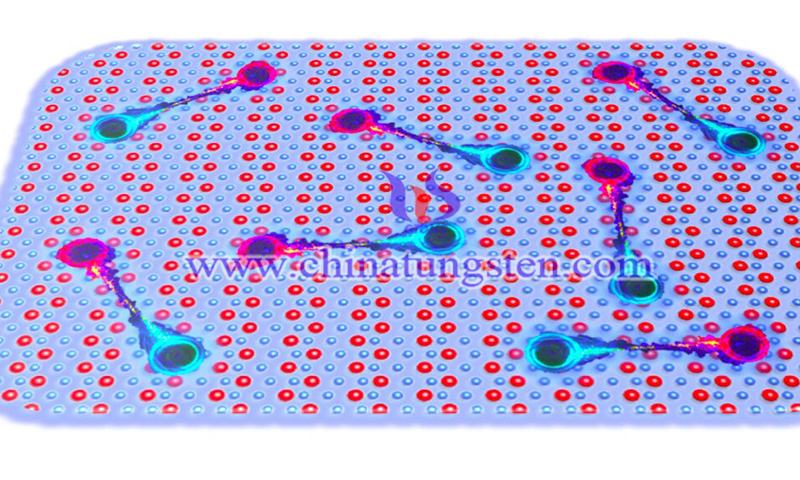Study Suggests Monolayer WTe2 Is An Excitonic Insulator
- Details
- Category: Tungsten's News
- Published on Monday, 24 January 2022 11:47
A recent study conducted by researchers at Princeton University has shown monolayer tungsten ditelluride (WTe2) as an excitonic insulator (EI). Tungsten ditelluride is a transition metal sulfide (TMD) with many unique properties and characteristics that make it an ideal material for electronic applications. Past studies have shown that monolayers of two-dimensional tungsten ditelluride crystals form the first monolayer topological insulator, exhibiting topological properties that can persist to very high temperatures (~100 K).
In the past, physicists have been able to understand fairly well the origin of the topology of the material, but the reason why the tungsten ditelluride monolayer behaves as an insulator remains unclear. Theoretical predictions and calculations suggest that the material should in principle be semimetal, in which electrons and holes coexist and move freely.
Researchers at Princeton University recently conducted a study to investigate the electronic properties of monolayer WTe2. Their paper, published in Nature Physics, provides strong evidence that the material is an EI that forms spontaneously in the electron-hole bonded state known as 'excitons'.
Excitonic insulators arise from the formation of bound electron-hole pairs (excitons) in semiconductors and provide a solid-state platform for quantum many-boson physics. "The initial aim of our work was to understand the quantum properties of the very novel two-dimensional material monolayer tungsten ditelluride," Sanfeng Wu, one of the researchers who conducted the study, told Phys.org. "Our research conducted a systematic study to solve this puzzle and found strong evidence that this two-dimensional insulator is an EI."

"Excitons are charged neutral particles, like hydrogen atoms," Wu explained. "The concept of excitons is not new in semiconductor physics; for example, excitons play a key role in the optical excitation and emission of semiconductors. However, photoexcited excitons in semiconductors are very short-lived because they must decay within nanoseconds, for example by emitting light. In contrast, in excitonic insulators, excitons do not emit light and do not decay."
In their experiments, the researchers ruled out the possibility that the monolayer WTe2 is a band insulator. To do this, they examined two-dimensional tungsten ditelluride crystals using electron tunneling spectroscopy.
"We conclude that the formation of the monolayer insulator state is due to an intrinsic electronic association," Wu said. "Combined with the fact that the state occurs exactly at charge neutralization, meaning that the number of electrons and holes is exactly equal, it is clear that the monolayer insulator is an excitonic insulator."
Wu and his colleagues also found that the monolayer tungsten ditelluride samples they examined exhibited unusual transport behaviors consistent with those expected in excitonic insulators. Subsequently, they developed a theoretical model that takes into account electron-hole correlations, further supporting the formation of exciton insulator phases.
Recent studies conducted by this research group have shown that monolayer tungsten ditelluride is a promising candidate material for two-dimensional exciton insulators. In the future, it could provide a reference for further studies of monolayer tungsten ditelluride or other materials with similar structures to explore the possibility of discovering more exciton insulators.
"Our work identifies monolayer tungsten ditelluride as a unique and unprecedented platform for the future studies of not only the excitonic insulating state but also other possible new quantum phases such as excitonic superconductivity, especially since monolayer WTe2 can be electrostatically tuned from the excitonic insulator state to a superconductor state," Yanyu Jia, a graduate student and lead author of the paper, told Phys.org. "Revealing the underlying relations between the two phases will be interesting and for sure deepen our understanding of quantum phenomena in materials."
- Tungsten Manufacturer & Supplier, Chinatungsten Online: www.chinatungsten.com
- Tungsten News & Prices of China Tungsten Industry Association: www.ctia.com.cn
- Molybdenum News & Price: news.molybdenum.com.cn
- Tel.: 86 592 5129696; Fax: 86 592 5129797; Email: sales@chinatungsten.com



 sales@chinatungsten.com
sales@chinatungsten.com